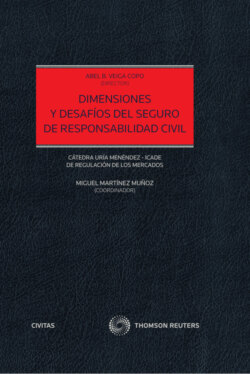Читать книгу Dimensiones y desafíos del seguro de responsabilidad civil - Abel B. Veiga Copo - Страница 105
На сайте Литреса книга снята с продажи.
1.2. Heavy Commentary on the RLLI, Mostly By Insurers and Allies
ОглавлениеInsurance defense panel counsel continued to produce anti-RLLI commentary after the 2017 Annual Meeting as well as producing a media spin that the ALI was in some retreat on the RLLI because it had postponed final approval to the 2018 Annual Meeting. Near-meeting or post-meeting comments included submissions from the AIA Liaison52, insurer attorney and WLF contributor Kim Marrkand53, ATRA activist Victor Schwartz54, former law professor and insurer attorney Malcom Wheeler55, Pennsylvania insurance defense attorneys56, and other insurance industry allies57. Some ALI Members not affiliated with the insurance industry also submitted commentary58, as did some policyholder counsel59. But roughly 80 percent or more of the commentary was from the insurer side. The tone of the commentary was different as well. Policyholder counsel or academics targeted specific aspects of the RLLI for criticism but did not denounce the entire project or suggest its postponement or abandonment. In contrast, many insurers or their advocates appears to not only have condemned the RLLI as a whole and sought delay but also attacked the ALI as a whole and the long-established concept that Restatements do more than merely count and summarize cases but also make assessments as to better rules of law.
Sometimes joining insurers where corporations. The thinking of RLLI critics from the non-insurer business community seems decidedly contradictory. It of course makes sense that insurers would rather have a legal regime more favorable to insurers. But why would non-insurers –a/k/a policyholders– oppose the RLLI on the ground (erroneous in our view) that it is unduly favorable to policyholders. Insurance policies are contracts purchased for risk management and protection. A rule that fairly promotes recovery when policyholders suffer a loss or face a claim should be welcomed by business advocates regardless of whether the business is an individual or a commercial entity.
One possibility is that non-insurer businesses have inexplicably forgotten that they may someday be policyholders in coverage litigation with insurers, in which case, they might well prefer a doctrines of contract construction, duty to defend, bad faith, fee-shifting, and remedies for breach at odds with those advocated by insurers. More likely in the frontal lobes of business is concern that a less formalist or textualist contract construction regime in the RLLI could spill over into the pending Restatement of the Law of Consumer Contracts, thereby providing ALI support for contract construction that reduces the importance of the “fine print” of standard forms in favor of consumer expectations and notions of fairness.
